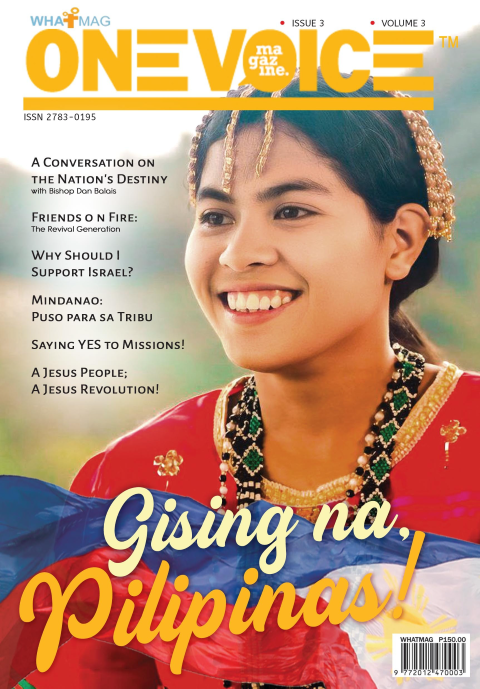I grew up familiarizing myself with the types of fish I had seen in the ocean of Jolo, Sulu. At a young age, I would join the “hulbot hulbot” (fishing boat) with the adults to fish in the sea for weeks. I was raised near the shores of Sangali, Zamboanga City. My late father, Alberto Bongabong, was a very hardworking Papa. He would teach me how to sew nylon fishing nets that later became my part-time job during high school. Saturdays and Sundays were my bonding time with him as we sat together near the port and sewed as many nets as we could. In the evening, I would rush home after a busy day to join my mama in daily prayer at exactly 6 p.m.
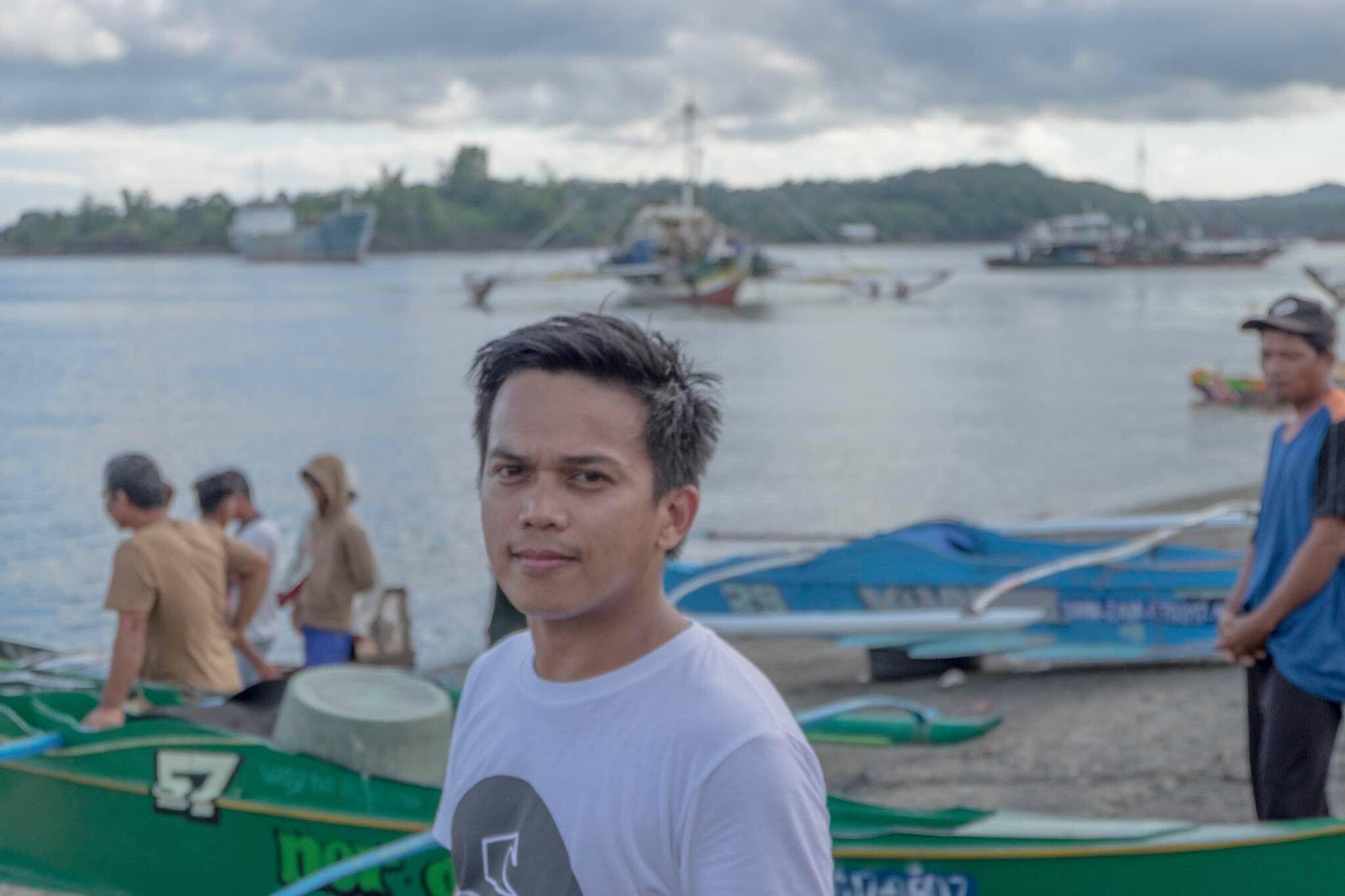
My youth was very colorful. Growing up in an environment of survival, I strived for creativity. I almost joined every art competition in school, especially the ones that had cash prizes, and I always aspired to join bigger ones outside our town. Still, money was hard to come by— even for just a bus ride.
I failed in so many of those competitions. Nevertheless, whenever I won, I would give my full cash prize to my mama. It was a habit—or should I say—an instinctual response, so I could help provide for food.
I entered the art industry because I saw painting as a means to survive. But early on, I imagined myself painting people. I loved doing it, but never in my wildest dreams did I think of being known in this field.
After my mom passed away in 1999, my family moved to Pagadian City where I continued my high school studies. During my 4th year, I won the championship in the National Poster Making Contest by the Philippine Association of Water Districts, held in Bacolod City in 2003. It was my greatest achievement at that time. I remember jumping from my seat after they declared that I won! But I cried later, knowing that I could not give my cash prize to my mama anymore. Back then, P30,000 was of great value. Mama would have been very proud.
It had spread around our town that Davao City was a very safe place. Eventually in 2005, I found myself riding a bus going to Davao. Not knowing anyone in the city, I spent my first night sleeping on the sidewalk of Uyanguren (Magsaysay Street). Coming from a poor family, this experience was not something totally new to me, but being in a different town and sleeping on the sidewalk brought some fear and worry to my heart. I knew no one in Davao City.
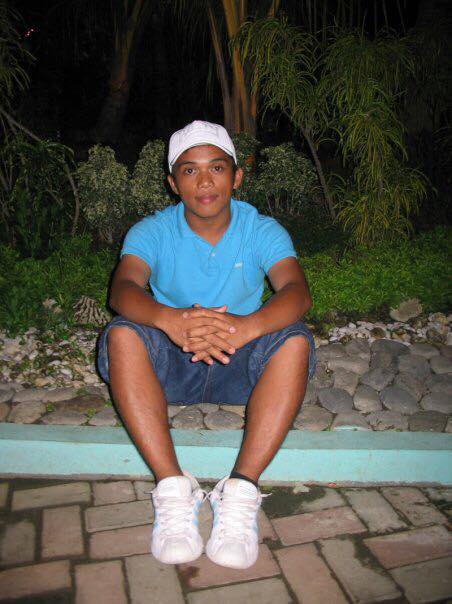
It may sound like a terrible experience to sleep on the street, but I didn’t see it that way. There was no complaining or grumbling in my heart as I lay on a layered carton box, trying to keep warm. I didn’t dare question the Lord’s sovereignty over my life. It was hard being poor, but there was acceptance in my heart.
Davao city is indeed a beautiful and peaceful place to live in. I said to myself, “This will be my home until I’m old.” Still, I needed work to survive. I believe a person finds a way if he really wants to. I started to do portrait art commissions. Many Dabawenyos started to appreciate my artwork, but it wasn’t always a smooth road. There were times my customers would return my paintings and get a refund because I didn’t get the exact likeness of their photos.
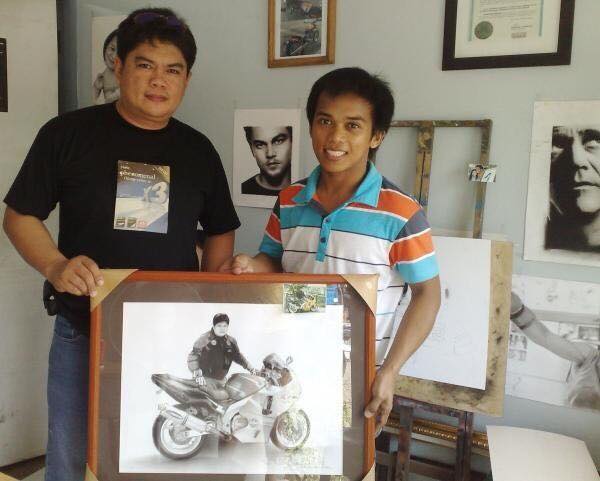
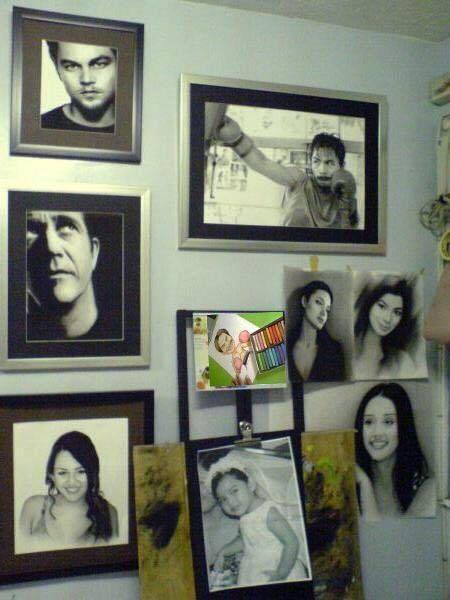
I saw these experience as challenges for myself to move forward, learn more, and improve on my craft. I knew that I had to focus on cultivating the gift that the Lord gave me, so that the next time I had customers, they would not return the portraits anymore. I learned to humble myself and accept correction. I spent days and nights practicing my craft.
I started dreaming of having a small shop inside the mall. I remember sketching how I wanted my shop to look like. I envisioned a wooden floor and imagined the tree-green color of the walls. Little by little, from one client to another, I saved money and was finally able to afford a space, 1 x 3.5 metric size, inside Victoria Plaza (my shop was beside Kodak in the mall).
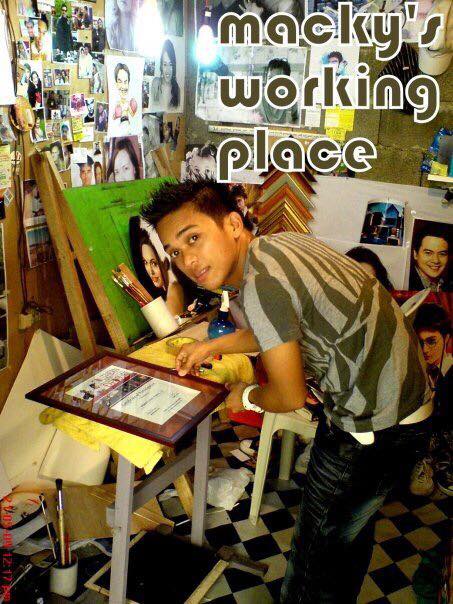
I started my shop in January 2013, and expanded by March that same year. From Victoria Plaza, I transferred to a space inside a prestigious mall, the Abreeza.
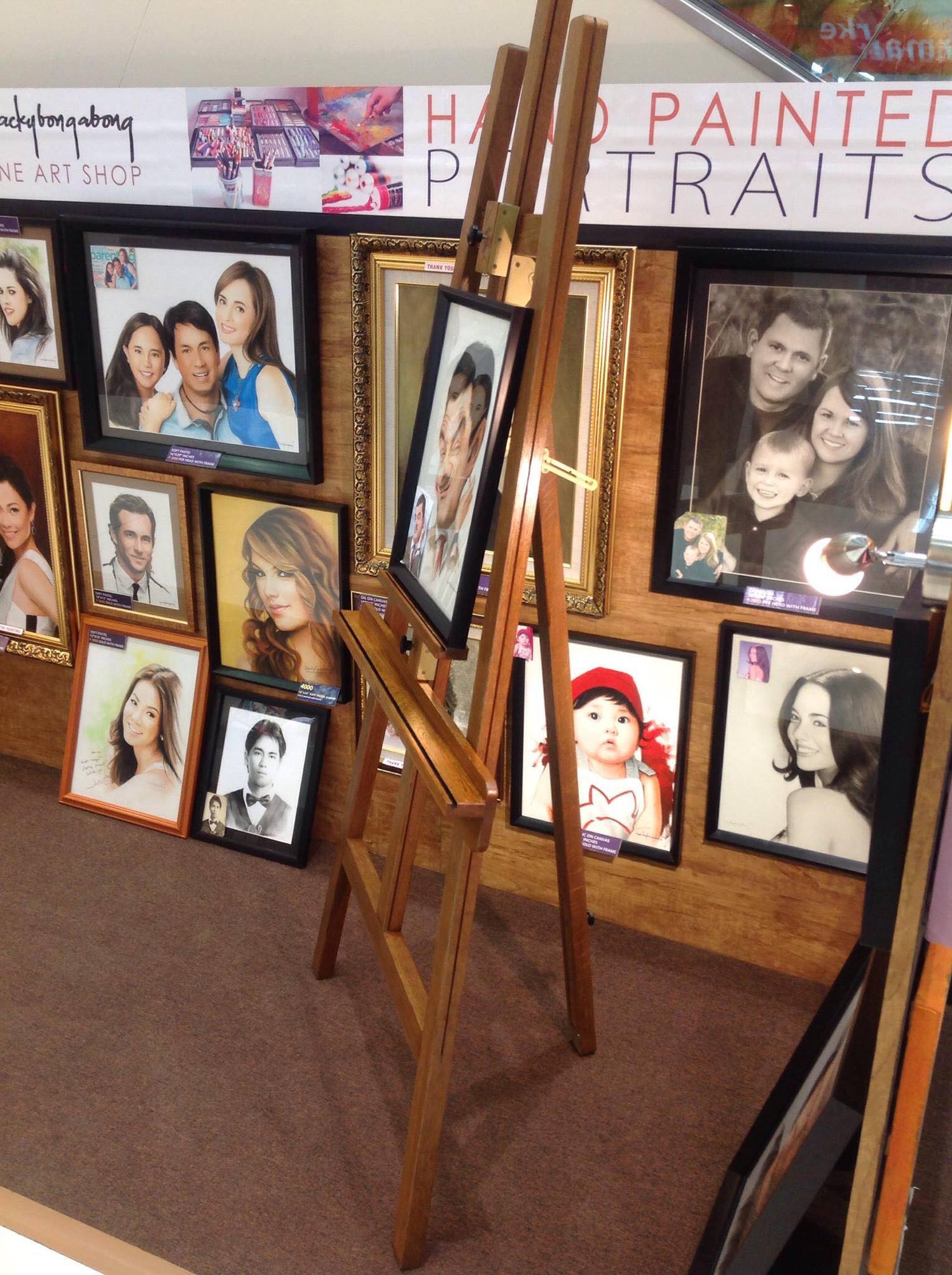
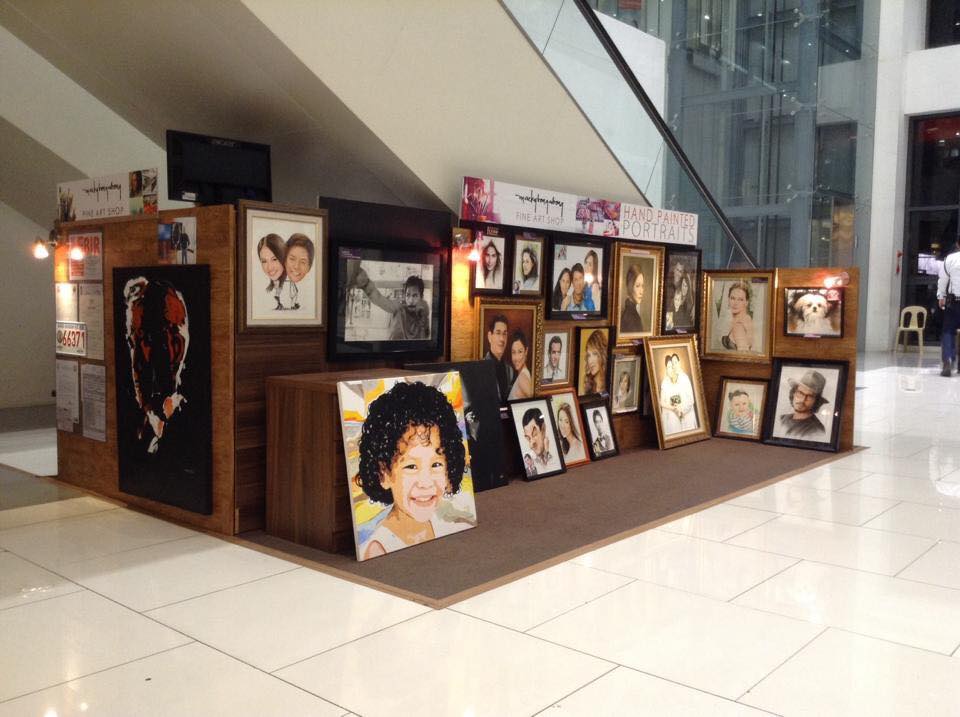
Standing in the shop, I now see how similar my original sketch of my dream shop is to this one. The two aren’t exactly the same, but they are similar. Time has allowed my dream to progress and improve upon the original plan that I had. I realize that planning is a wonderful thing made even more wonderful, when the plans that we make are committed to the Lord. All we can do is plan. Establishing the plan is the Lord’s doing.
Earlier this year, 2019, someone passed by my shop and handed a small piece of paper to my assistant. When I read it, I saw the words: “The Office of the President of the Philippines, Manila.” My eyes widened, and my heart started to beat faster. I was stunned and shocked. But I knew in my heart that this was the Lord’s doing. I knew He orchestrated this. I recognize God as the Giver of my gift, and I recognize His hand upon my life.
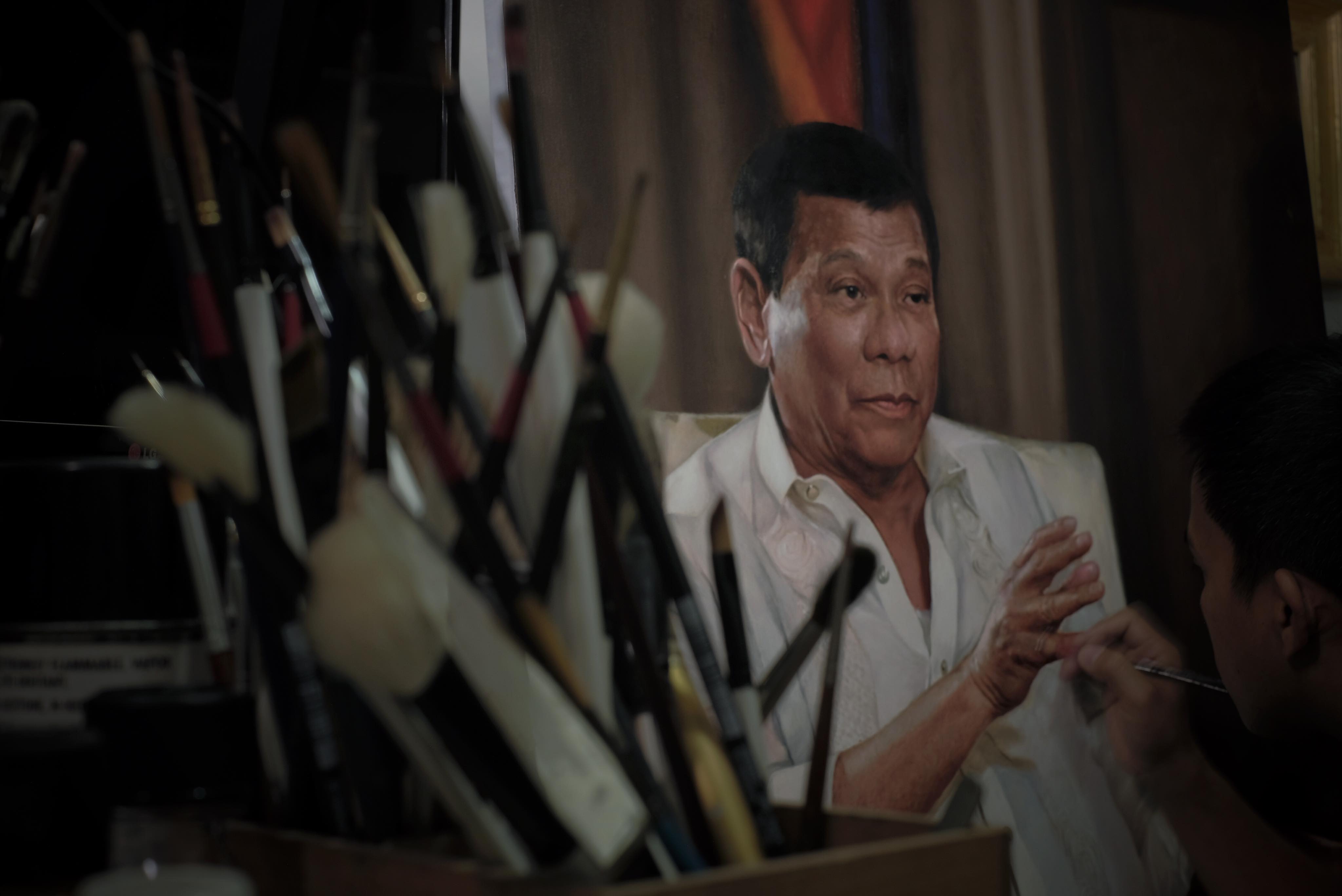
Now, my painting of the president hangs on the wall of the People’s Palace (Malacañang Palace). Who would have thought that a boy just sewing fishing nets by the port, skin burnt by the sun, would later be a part of Philippine history? My artwork hangs beside the works of Fernando Amorsolo and other national artists.
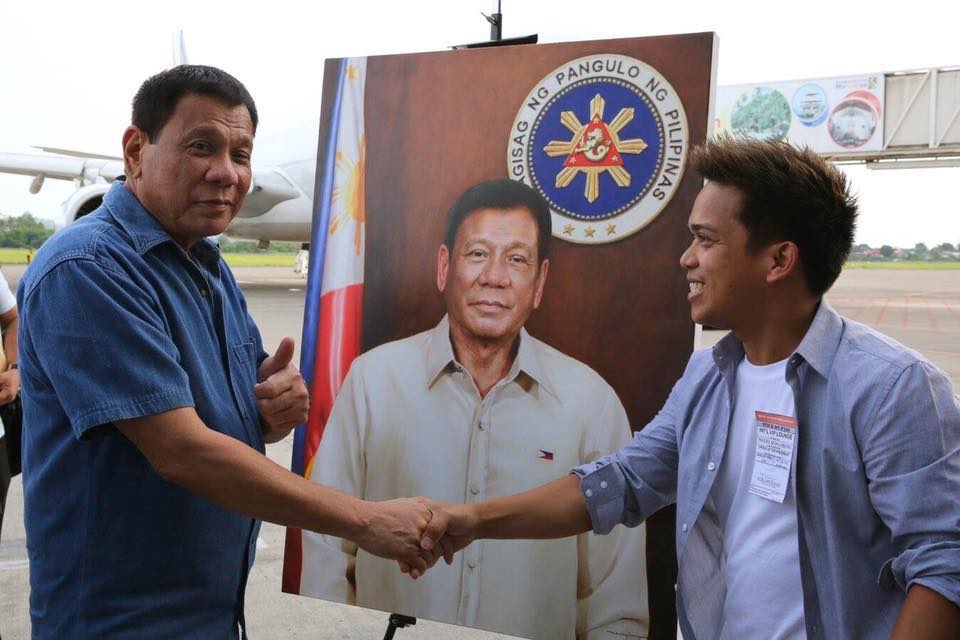
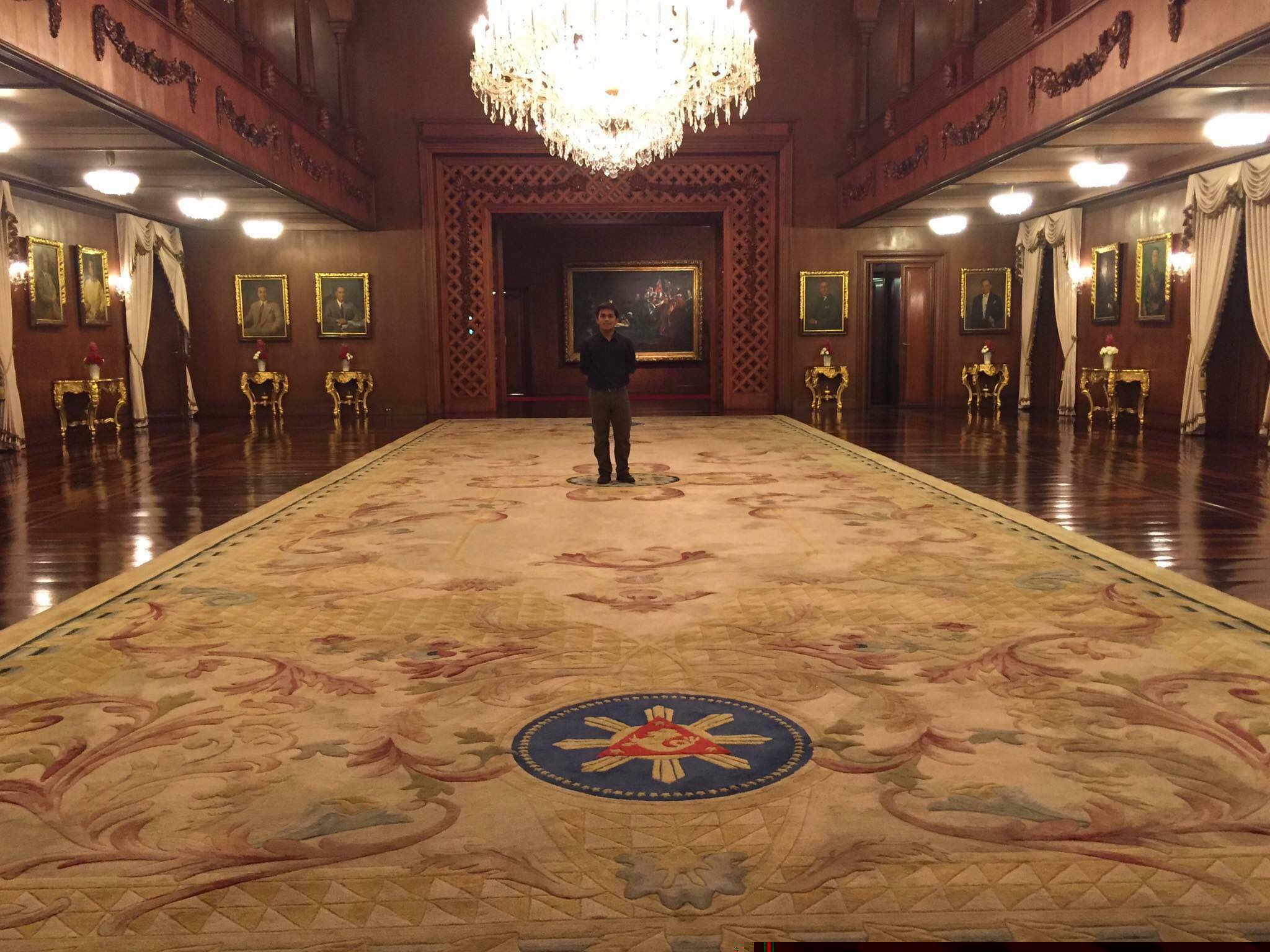
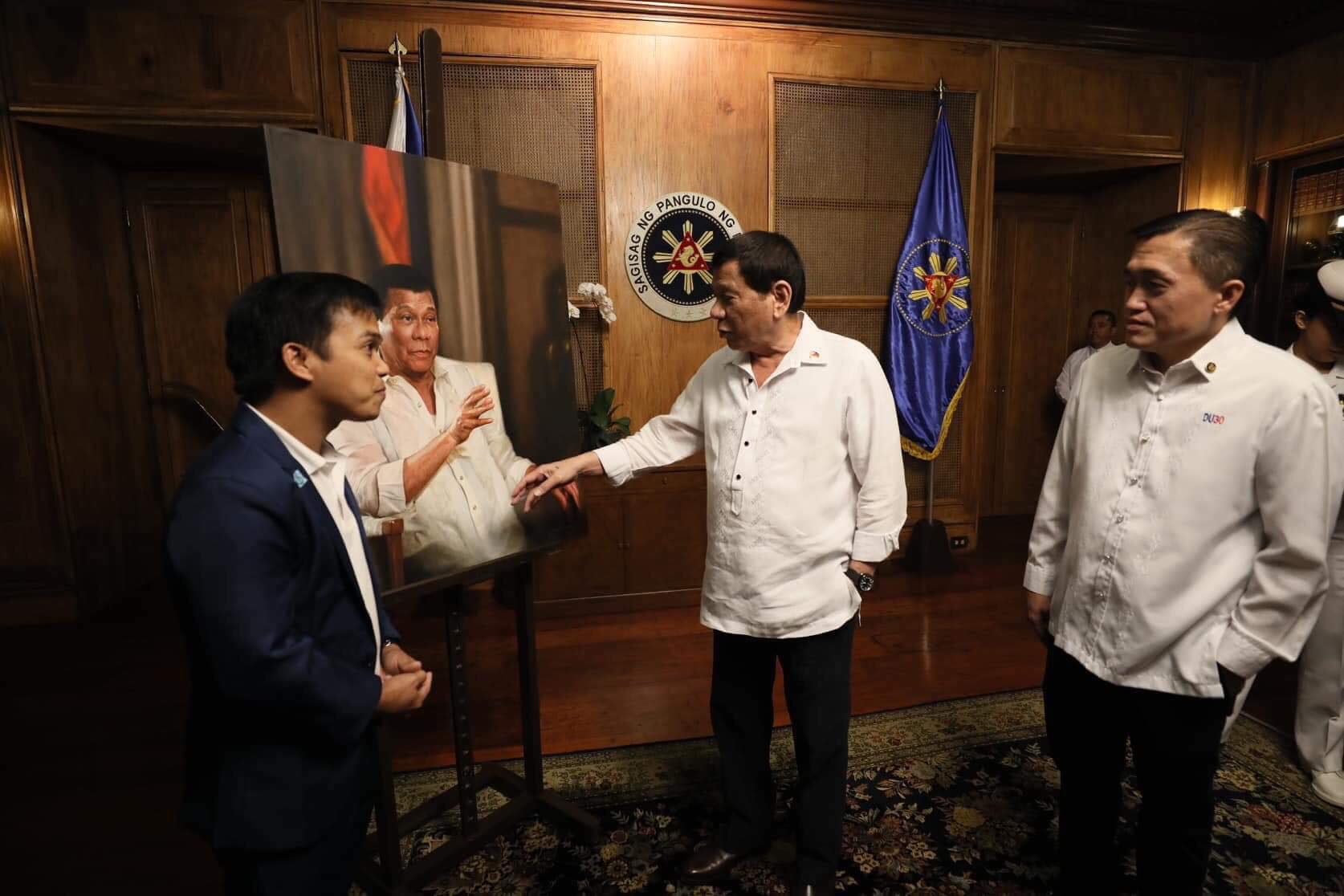
Thank you Mayor/Tatay/President for appreciating my gift to you. We love you.
I believe that we must not look at how small we are, or how little we have, but how big God is and how beautiful His plans are for us. My understanding of my craft grew. From viewing art as merely a means to survive, I now see that my gift of art can be used to bring transformation and hope to our society. My paintings, no matter how simple they may be to some people, can influence people. I choose to paint positive images in the hope of deviating from the dark themes rampant in today’s art industry.
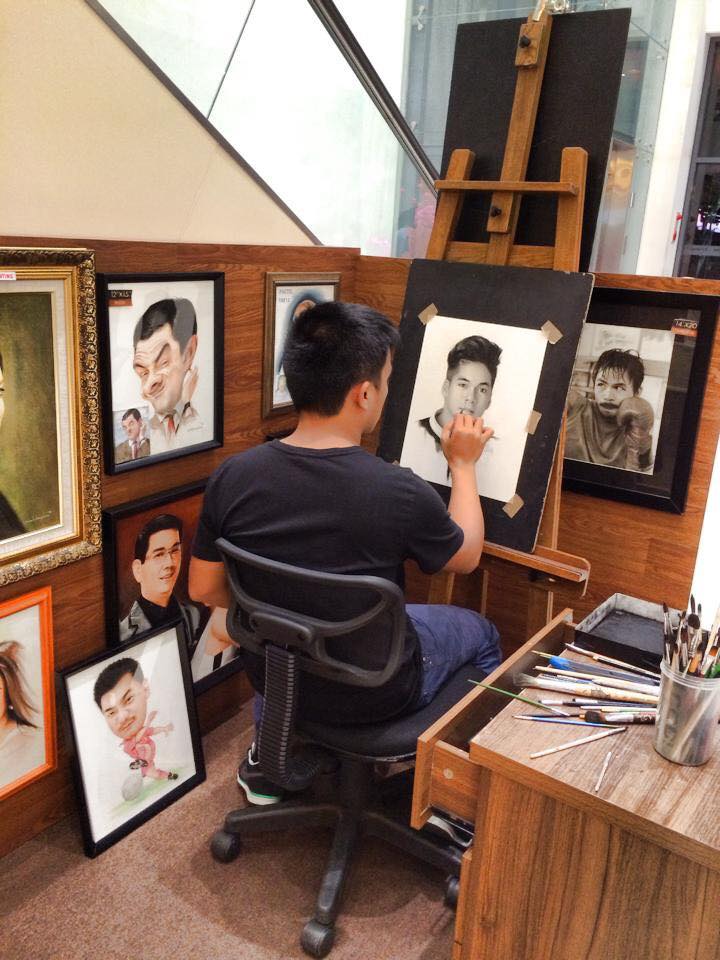
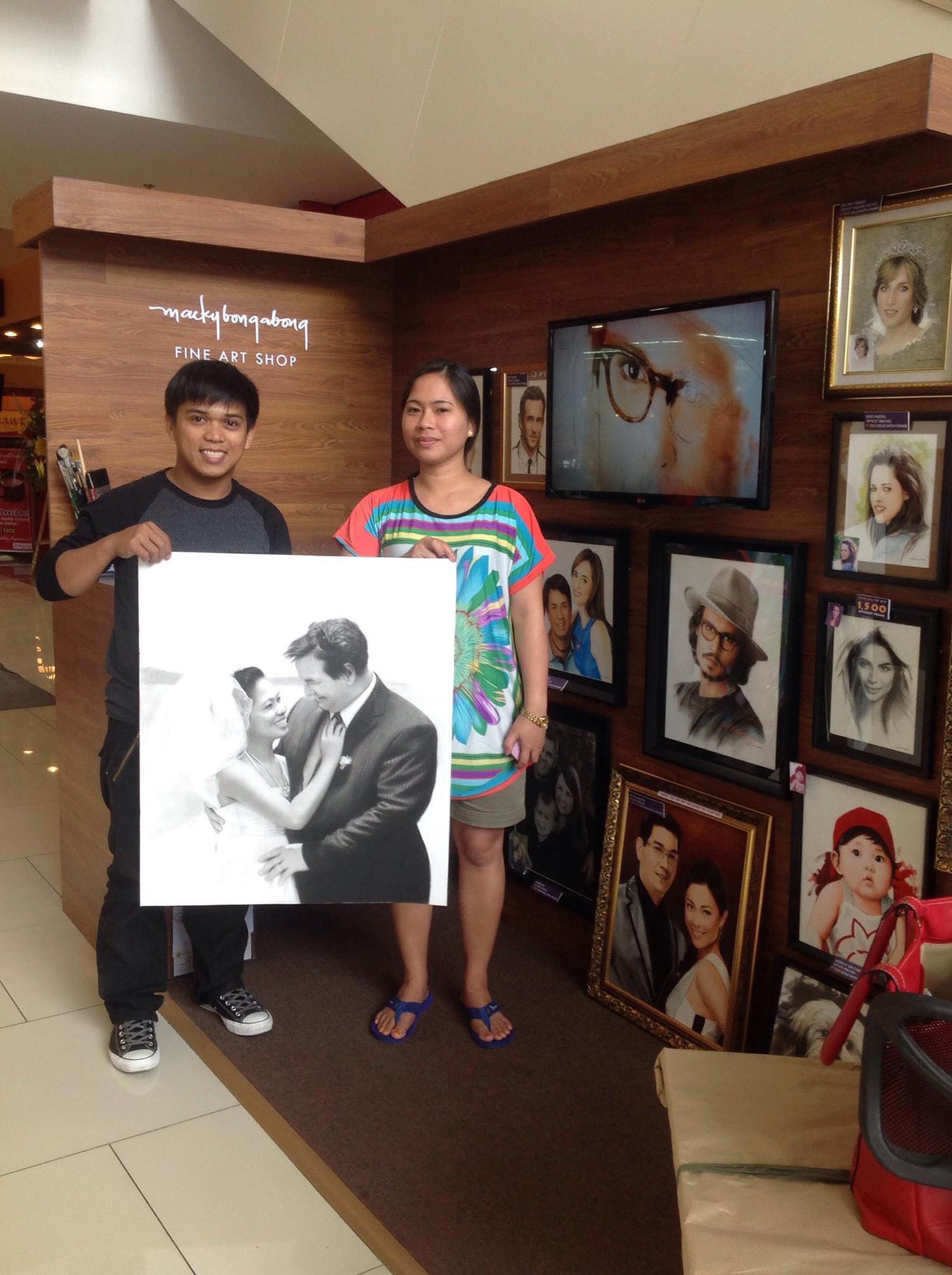
*First published on Sept.27, 2019
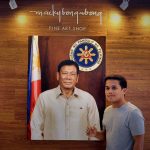
Mart Henry “Macky” Bongabong
Macky continues filling the world with his beautiful art. He now finds himself doing the paintings of world leaders— presidents and ambassadors of different nations. Currently, he is taking steps to move to Barcelona, Spain, where he plans to set up his main base of operations.



